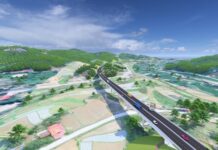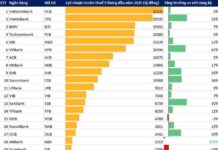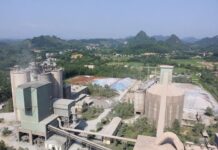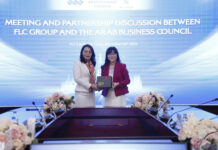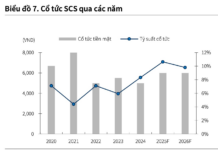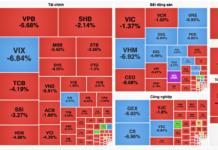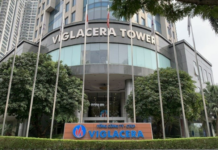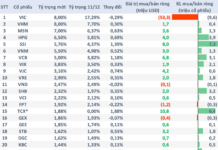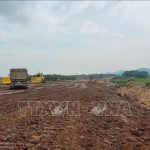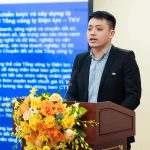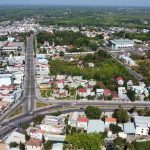The Ministry of Finance is proposing to develop a resolution for the National Assembly to extend the exemption period for agricultural land use tax as prescribed in Resolution No. 55/2010/QH12.
Approximately 7,500 billion VND has been exempted in the period of 2021-2023
According to the Ministry of Finance, the proposal to develop a resolution for the National Assembly to extend the exemption period for agricultural land use tax, as stipulated in Resolution No. 55/2010/QH12 on the reduction and exemption of agricultural land use tax, amended and supplemented by Resolution No. 28/2016/QH14 and Resolution No. 107/2020/QH14, aims to institutionalize the guidelines and policies of the Party and State regarding agriculture, farmers, and rural areas.
At the same time, it encourages organizations and individuals to invest in agriculture, farmers, and rural areas, contributing to the restructuring of the agricultural sector and further enhancing the value of agricultural products. This will, in turn, improve the competitiveness of agricultural products in the context of international integration, and continue to build on the achievements of the policy on exempting agricultural land use tax.
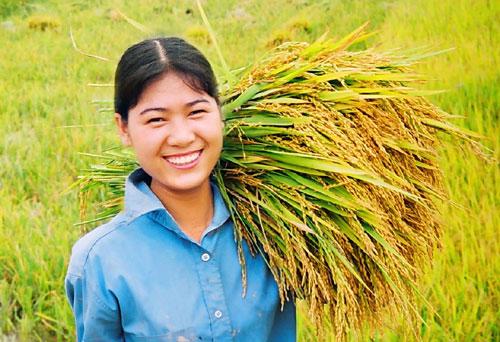
In the draft report on the proposal to develop a resolution for the National Assembly on exempting agricultural land use tax, the Ministry of Finance stated that the evaluation of the 20-year implementation of the policy on reducing and exempting agricultural land use tax showed that the total amount of tax exempted and reduced in the period of 2003-2010 averaged more than 3,268 billion VND per year;
In the period of 2011-2016, it averaged more than 6,308 billion VND per year; in the period of 2017-2018 and until the end of 2020, it was about 7,438 billion VND per year, and in the period of 2021-2023, it averaged 7,500 billion VND per year.
The policy on exempting and reducing agricultural land use tax is a significant and important solution that contributes to realizing the guidelines and policies of the Party and State regarding agriculture, farmers, and rural areas in each period. It directly supports farmers and encourages organizations and individuals to invest in agriculture, farmers, and rural areas, promoting the concentration of land for large-scale agricultural production.
“This also contributes to encouraging the concentration of land for large-scale agricultural production, promoting the transformation of the economic structure of agriculture and rural areas towards modernization, improving the lives of farmers, creating jobs in rural areas, and encouraging farmers to have a stronger attachment to the land and confidently invest in agricultural production,” the Ministry of Finance stated.
Especially, this policy also helps enhance the competitiveness of agricultural products in the market in the context of international economic integration. Therefore, it is necessary to continue implementing the exemption of agricultural land use tax as prescribed in the current regulations.
The draft clearly states: “Extend the exemption period for agricultural land use tax prescribed in Resolution No. 55/2010/QH12 dated November 24, 2020, of the National Assembly on the reduction and exemption of agricultural land use tax, which has been amended and supplemented by Resolution No. 28/2016/QH14 dated November 11, 2016, and Resolution No. 107/2020/QH14 dated June 10, 2020, of the National Assembly, until December 31, 2030.”
PROPOSING 2 SOLUTIONS FOR THE EXEMPTION PERIOD FOR AGRICULTURAL LAND USE TAX
Regarding the exemption period for agricultural land use tax, the Ministry of Finance proposes two solutions.
Solution 1: Specify a 5-year exemption period for agricultural land use tax (continue exempting agricultural land use tax from January 1, 2026, to December 31, 2030).
Explaining this proposal, the Ministry of Finance stated that Vietnam is in the process of implementing the 2021-2025 Socio-Economic Development Plan in a complex global context, with many opportunities, advantages, and challenges. Due to the severe impacts of the pandemic and global geopolitical fluctuations, Vietnam’s economic growth in the first half of the 2021-2025 plan has slowed significantly.
Continuing the policy on exempting agricultural land use tax in the period of 2026-2030 is necessary to support sustainable agricultural development, boost post-crisis economic growth, encourage farmers to confidently invest in production, increase labor productivity, and improve their lives.
According to the Mid-term Economic Report 2021-2025 of the National Assembly, ensuring the achievement of the GDP growth target of about 6.5-7% on average for the five-year period is very challenging.
Given the multifaceted developments in the global economy, with the growth rate as in the previous period, and aiming for sustainable long-term growth prospects, continuing the policy on exempting agricultural land use tax in the 2026-2030 period is necessary to support sustainable agricultural development, boost post-crisis economic growth, encourage farmers to confidently invest in production, increase labor productivity, and improve their lives.
Solution 2: Specify a 10-year exemption period for agricultural land use tax (continue exempting agricultural land use tax from January 1, 2026, to December 31, 2035).
Analyzing the proposal for a 10-year exemption, the Ministry of Finance stated that, according to the General Statistics Office’s assessment, the socio-economic situation has faced many difficulties, and the lives of a part of the people remain challenging, especially in remote, mountainous, border, and island areas. Most poor and near-poor households lack livelihoods, stable jobs, and income, and inequality persists between urban and rural areas, regions, and between low-income and high-income groups.
Given the multifaceted developments in the global economy, although the average growth rate of the agricultural sector in recent years has been about 3%/year, the average income of farmers in rural areas has not improved much compared to the general level of society.
Therefore, a 10-year exemption period has political significance, encouraging farmers to confidently produce, supporting them in expanding production, enhancing their ability to cope with market shocks and managing risks related to natural disasters and epidemics, and demonstrating the consistent policy of the Party and State regarding agriculture, farmers, and rural areas, as well as the agricultural production cycle, especially for perennial crops.
In addition, a 10-year exemption period also corresponds to and is suitable for the conditions of cooperation and linkage in the production and consumption of agricultural products, supporting farmers in production and consumption.
However, a 10-year exemption period is a relatively long time in the context of unpredictable global economic fluctuations and the lack of specific orientations for Vietnam’s socio-economic development strategy after 2030.
To ensure alignment with the views and policies of the Party and State regarding agriculture, farmers, and rural areas, and to be practical given the socio-economic situation, the Ministry of Finance proposes to adopt Solution 1 (a 5-year exemption period for agricultural land use tax) in the draft.
Exceeding the Deadline for the Biên Hòa – Vũng Tàu Highway Construction
On the afternoon of March 6th, a delegation from the National Assembly, led by Mr. Le Quang Manh, Chairman of the Finance and Budget Committee, worked with the province of Ba Ria – Vung Tau on the implementation of Resolution No. 43 of the National Assembly regarding fiscal and monetary policies, supporting the economic and social recovery and development program. Additionally, they discussed the National Assembly’s resolution on several key national projects until the end of 2023.
NHNN: Plenty of room for credit growth this year
The representative of the State Bank of Vietnam asserts that with ample liquidity in the banking system, as the deposit balance exceeds the credit balance and there is still room for credit growth, the current conditions are favorable for credit institutions to provide funding to the economy.
How can Vietnam’s agriculture become smarter?
With various characteristics such as geographical distance, local labor, and different natural conditions in farming and agriculture in each region, the degree of information technology application in the value chain is uneven, so the agricultural sector is facing many “digital divide” gaps in terms of digitization level…
Stunning Aerial Views of Binh Duong’s Newly Established City
With the newly established Ben Cat City, Binh Duong province becomes the locality with the most provincial cities in the country, with 5 cities. Located in the northern part of the province, Ben Cat City has many inter-regional connecting routes passing through, where traffic congestion has never occurred.







